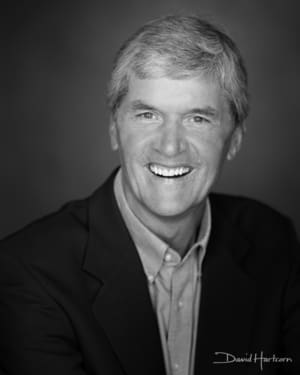Comment: Can you tell a story that will help us understand your work, in a paragraph or two?
Michael Metzger: I help people and organizations connect Sunday to Monday. I do it by reframing the way people imagine faith. Changing culture is a huge undertaking requiring overlapping networks of leaders and institutions—but it starts with changing the conversation. Why, you might ask? Let me ask you a question: When was the last time you introduced yourself as a “Victorian?” You wouldn’t do that, because we live in a post-Victorian age. So what happens if we’re in a post-Christian age? Many people imagine Christianity as “been there, done that”. Albert Einstein is quoted as having said that we could never solve a problem in the framework in which it was created. We have to first change the way people imagine faith—and that requires reframing.
For example, I consult for a gifts distribution company, in which I’ve reframed the gospel as a four-word “corporate code” that shapes every aspect of work—ought, is, can, and will. This code gives people “hooks” to talk about work as it ought to be, recognize the way it is, consider what they can do about it, and—hopefully—push toward what the company will be. If and when they ask “where I got this stuff,” I tell them it’s rooted in the ancient “four chapter” gospel of creation, fall, redemption, and restoration. This is how I get my foot in the door, because people invariably ask, “Where did you get this code—it really helps!”
 |
Comment: You have written that we have to find a deeper meaning for work, given that we live in an age of unparalleled prosperity—quoting Os Guinness, who wrote “we have too much to live with and too little to live for.” Do you think the current economic difficulties changes how you think we should approach our work?
MM: Not really. I’ve written that a handful of people—not a majority—do long to find a deeper meaning for work, but this doesn’t apply to everyone. I describe people as drifters, surfers, sanctuary seekers (that’s often the religious types!), or sailors. The last type of person, a sailor, believes in navigating life by “fixed points.” They long for deeper meaning, regardless of the current economic difficulties. Fixed means fixed. They go after the deeper meaning of life in good times and bad.
Comment: It seems as if the relationships between work, language and imagination are important in your thinking about business. Can you talk a little about those relationships?
MM: Sure; for instance, you just used language and imagination to convey a coherent question about work.
I’m a big fan of Albert Einstein and C.S. Lewis. Einstein is often quoted as saying that imagination is more important than knowledge. I think Lewis and Einstein both teach that we think in pictures, not propositions. Frames are pictures, assumptions or metaphors that shape facts. For example, if you called someone a pagan, most modern people imagine an irreligious person. But in ancient times, pagan simply meant country dweller (as opposed to city dweller). That’s a fact, but facts are inert objects—they’re always at the mercy of frames. If my wife imagines me as a lout, bringing home a bouquet of roses makes me look like I have ulterior motives. If Kathy imagines me as a good man, roses are a way of saying I love you. The frame makes all the difference.
This is why “all our truth, or all but a few fragments, is won by metaphor,” as C.S. Lewis wrote. Truth is rooted in the mind. Meaning is found in our imagination. Reframing the gospel gives new ways to help people imagine the truth—just as Starbucks CEO Howard Schultz did when he asked to describe his company’s mission. He reframed the question: “WWe’re not in the business of filling bellies. We’re in the business of filling souls.” Starbucks is more about community than coffee.
By the way, I’m not trying to be cute, relevant or develop a “brand.” I am not talking about changing the historical facts about the gospel. I am simply talking about changing the language frame. Once a new frame is in place, you’re in charge of the conversation. I’m reframing the ancient gospel in metaphors and language that are coherent in the 21st century. Alan Webber left the Harvard Business Review because he believed the magazine kept saying the same things over and over. “If you use the same words to describe the world, you’re sending the message that nothing’s changed. Change the language, and you change the way people think,” he said. Webber left HBR and founded Fast Company.
Comment: If our readers wanted to deepen their own thinking about work, language and imagination, what would you recommend they look at, listen to, read, or do?
MM: Here are three places to go. Read anything written by George Lakoff—start with Don’t Think of an Elephant. Second, read anything written by C.S. Lewis. You can’t miss. Third, read anything written by me on my blog, www.doggieheadtilt.com. The famous baseball pitcher Dizzy Dean said, “It ain’t braggin’ if you can do it.” It’s been scientifically proven that there are over 38 million things that I cannot do—but I can reframe faith through pictures. My blog aims to accomplish this every week.

